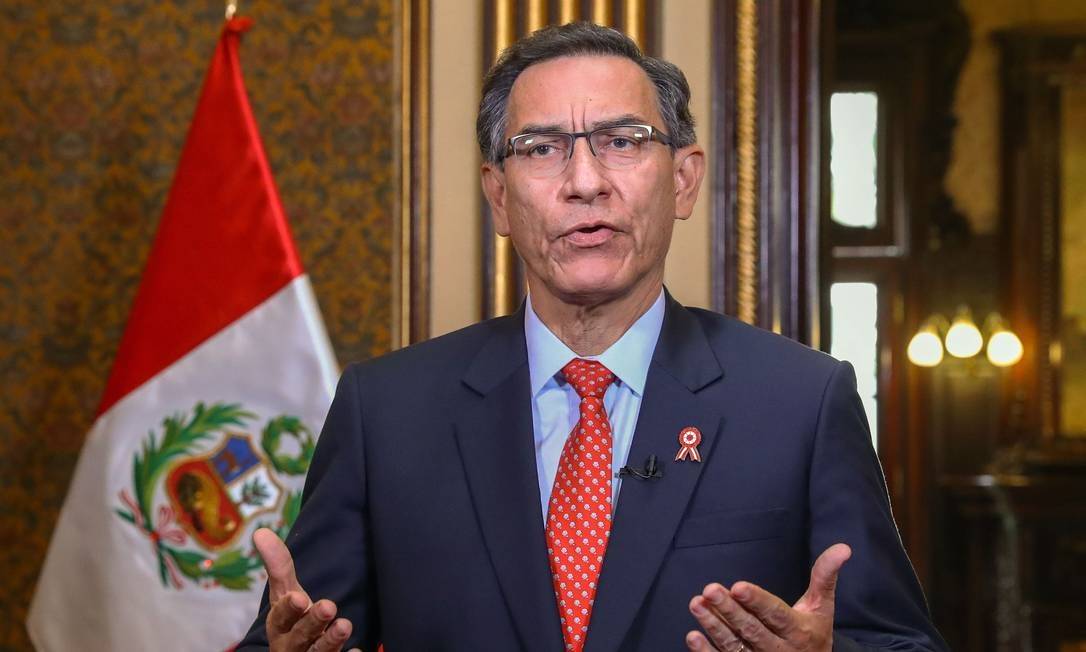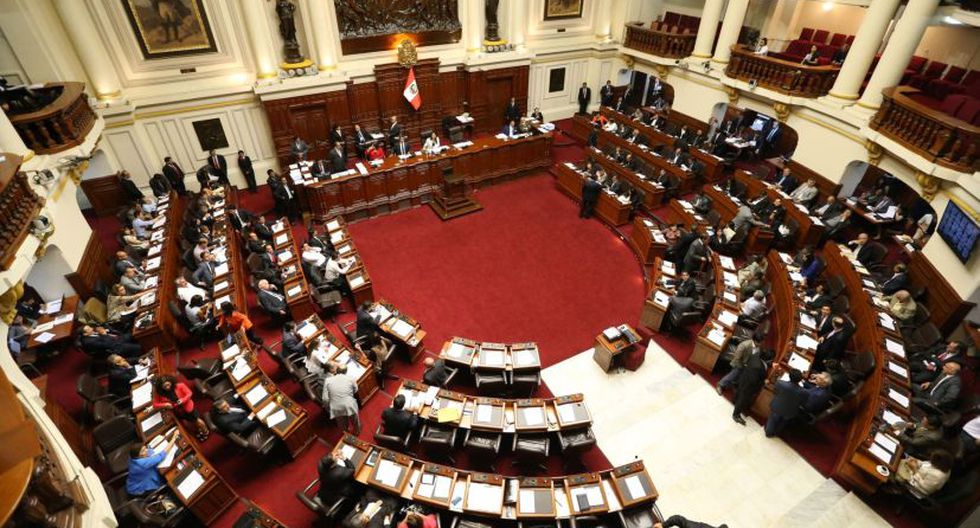RIO DE JANEIRO, BRAZIL – The tension between the Congress and the Executive in Peru peaked on Thursday night with a motion to oust President Martín Vizcarra. It would take 52 votes for the impeachment motion to be approved, but there were 65 in favor, 36 against, and 24 abstentions. Now, the impeachment will be debated by Congress within the next three to ten days.
The proposal, which aims to vacate the presidency, is based on charges made by a legislator who presented three audios of conversations – recorded without the authorization of the speakers – about a friend of the head of state who was benefited with nine state contracts for almost US$50,000, classified as lecture and consulting services.
Deputy Edgar Alarcón, who disclosed the audios on Thursday, was denounced in July by the Prosecutor General for the crimes of illicit enrichment and willful embezzlement during his term as Comptroller General of the Republic between 2016 and 2017. The constitutional denunciations lodged by the Prosecutor’s Office will have to be debated by Congress, which must also decide on the lifting of legislative immunity in order for him to be prosecuted.

Alarcón is a member of the Union for Peru party, led by Antauro Humala, a politician and ex-military officer arrested for leading an uprising that ended with the murder of four police officers in 2005 and serving a 19-year prison sentence for these crimes. Antauro Humala -the brother of former President Ollanta Humala- is a populist and nationalist politician who proposes the death penalty and intends to be a presidential candidate.
Thursday’s audio disclosure was approved by the President of Congress, Manuel Merino, of Acción Popular (Popular Action), the majority party in the legislature, albeit divided into three factions that correspond to the three politicians who intend to be presidential candidates in the April 2021 elections. The Supervisory Committee of Congress, headed by Alarcón, has been investigating the hiring by the state of music producer Ricardo Cisneros, who in the world of entertainment calls himself Richard Swing, a personality barely visible before these accusations.
When the press asked President Vizcarra about his connection with Cisneros, he replied that he had known him since Pedro Pablo Kuczynski’s election campaign in 2016, but that he did not influence his hiring and was not close to him.
One of the audios disclosed by Alarcón consists of a conversation between the president, his personal assistant, the secretary-general of the presidency, and a communication advisor, in which they agree on the report to be provided on Cisneros’ visits to the Executive’s headquarters, within the framework of the fiscal and parliamentary investigations of the Ministry of Culture’s contracts awarded to him. Cisneros provided services during the Kuczynski government but earned more in Vizcarra’s management.
The second audio is a tense conversation between the president and his secretary about potential staff dismissals as a result of the investigations, and the third is a dialogue between the same official, Karem Roca, and Cisneros. After the conversations were made public, legislators from several parties – among them Podemos Peru, two of the main leaders of which are under fiscal investigation for money laundering and involvement in a criminal organization – demanded a presidential impeachment.
On Thursday night, in a message delivered live, Vizcarra rejected Congress’ tactics. “I won’t deny the conversation, but it was internal coordination that occurs in any institution, a way to clarify what was happening in the scope of the investigations. At that meeting, I must point out, I said ‘let’s tell the truth’,” said Vizcarra. “All this is a farce that seeks to destabilize democracy to take control of the government, allow the reelection of legislators, defer the elections and ensure their electoral victory,” added the president.

Since last year, the previous Congress and the current one have been boycotting political reforms aimed at preventing the candidacies of people who use politics to shield themselves from investigations and judicial proceedings or to defend the interests of corruption and mafias.
For instance, a legislator from Podemos Peru, Daniel Urresti, has been on trial since last week for the murder of journalist Hugo Bustíos, committed when the politician was an army intelligence officer in 1988. Since the parliament that replaced the one dissolved in September last year was inaugurated in March, the clash between state powers in Peru has been ongoing.
In his message, the Peruvian president pointed out that the second vote on a rule that prevents the candidacy of people with first-degree sentences was on Congress’ plenary agenda on Thursday. After listening to the audios, the legislators set the agenda aside and discussed neither this law nor others.
Vizcarra declared that the Attorney General’s Office’s request to lift Alarcón’s immunity “to pursue further investigations for alleged crimes of illicit enrichment, embezzlement, omission of functions, and forgery of documents is pending. One hour after Vizcarra’s message, 31 Acción Popular, Podemos Peru, Aliança para el Progreso, Unión por la Peru, Forza Popular, and Somos Peru legislators signed a motion to declare the presidency vacant due to Vizcarra’s “permanent moral inability”. One of them removed his signature minutes later.
The President of the Congress called a plenary session on Friday morning to debate the issue. Deputy Gino Costa, of the Morado Party, who has not signed the motion for vacancy, said that the case could be referred to the Attorney General’s Office of the Nation so that as of July 29th, when Vizcarra’s term ends, he may be investigated, as the Constitution mandates. “This is not a case for vacancy,” he said. If Parliament gets 104 votes, the impeachment debate can occur on the same day. And the approval of the vacancy requires 87 votes. The Peruvian Congress has 130 members representing nine political parties, but not all vote along the party line.
Source: El País

